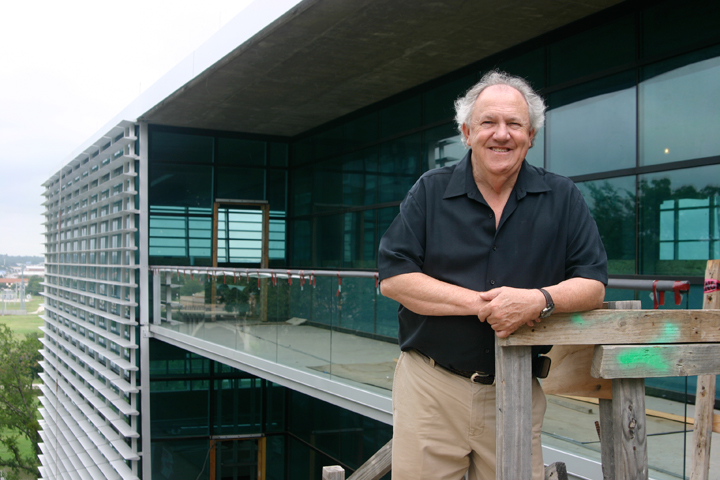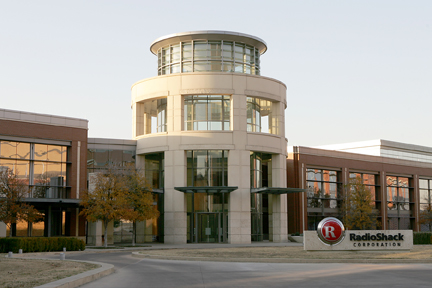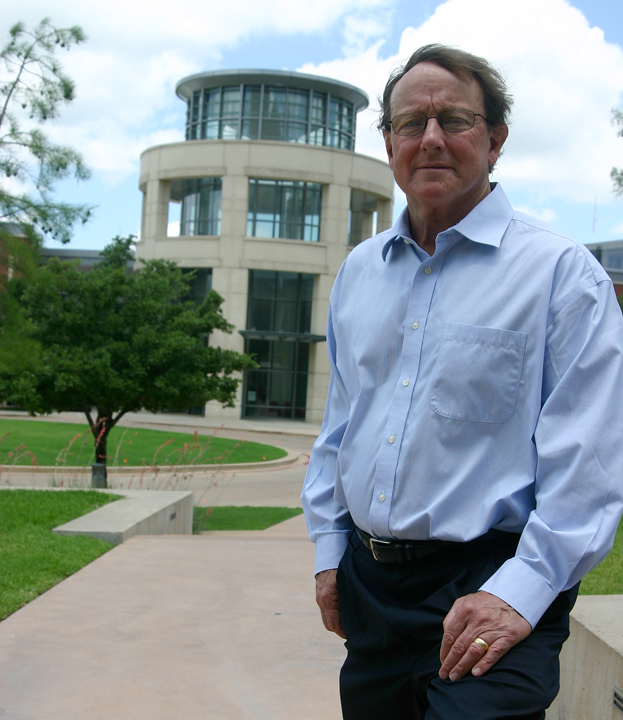What a difference an election makes.Less than an hour after Bill Greenhill and O. K. Carter were sworn in as new trustees on the Tarrant County College District board last week, the majority voting bloc that board president Louise Appleman had led for two years was turned on its collective head.
 Trustee Robyn Winnett, who often butted heads with Appleman on critical policy issues and at least once called for her resignation, nominated board member Joe Hudson for president that night. Greenhill and Carter voted with them in what Carter calls “a power shift on the board.” Winnett and Hudson, who had previously found themselves on the losing end of most votes, were suddenly part of a new and very different four-member majority.
Trustee Robyn Winnett, who often butted heads with Appleman on critical policy issues and at least once called for her resignation, nominated board member Joe Hudson for president that night. Greenhill and Carter voted with them in what Carter calls “a power shift on the board.” Winnett and Hudson, who had previously found themselves on the losing end of most votes, were suddenly part of a new and very different four-member majority.
Hudson was not actively campaigning for the job of president but had heard “mumblings that some board members were ready for a change,” he said.
Appleman, who has been a trustee since 1988, appeared stunned. Greenhill had voted against a woman he’d long considered a friend.
“It was a hard vote for me,” said Greenhill, who wonders now if that friendship will be strained. “But it was the right vote. … It is time for new leadership and a shift in the philosophy of the board.”
Under Hudson’s leadership, Greenhill said, the board will be “more inclusive, transparent, and will engage the community” in its decision-making process. Long-time critics of Appleman say she failed to do that, running the board as if she oversaw a private corporation rather than a public institution. (She did not respond to requests from Fort Worth Weekly for comment, and Winnett could not be reached for comment.)
The decision wasn’t hard for Carter. He said the former board president forgot the key goals of a community college. “What you have to think about over and over again is that a community college is supposed to do three things — provide quality education, be reasonably accessible, and be reasonably affordable. It needs to be inexpensive. Community colleges give people a second chance.”
Hudson was frustrated by a lack of board transparency. He said Appleman’s close-to-the-vest governing style often kept board members — and the public — in the dark until the last minute about issues the trustees would have to vote on, giving them little time to review the pros and cons of the question. “We would get our [agenda] packets and — surprise! — there would be items that we had not heard of, but we would still have to vote on them,” Hudson said.
 Appleman was simply “part of the old culture of this board, which said, ‘This is how we do things and how we’ve always done things,’ ” Hudson said. Still, she might have survived were it not for her refusal to recognize the looming disaster of former chancellor Leonardo de la Garza’s mismanagement of the downtown campus construction project. The ever-escalating and eventually unsustainable costs of the project inspired Hudson to run in 2008 and brought Greenhill and Carter to the board this year.
Appleman was simply “part of the old culture of this board, which said, ‘This is how we do things and how we’ve always done things,’ ” Hudson said. Still, she might have survived were it not for her refusal to recognize the looming disaster of former chancellor Leonardo de la Garza’s mismanagement of the downtown campus construction project. The ever-escalating and eventually unsustainable costs of the project inspired Hudson to run in 2008 and brought Greenhill and Carter to the board this year.
They will be working with Chancellor Erma Hadley-Johnson, a longtime TCC administrator who was hired to fill the post in March. Greenhill said he’s very impressed with her leadership. Carter is withholding judgment until he has worked with her longer.
One thing is certain: The culture of which Appleman was a leader “is about to change,” Hudson said.
“And not a moment too soon,” said a jubilant Larry Meeker, a Fort Worth oilman and passionate advocate for TCC who led the fight 45 years ago to establish the junior college district. His fingerprints are all over the elections of the new trustees.
That still leaves the board with questions of what to do about the boondoggle on the bluff and figuring out the details of how it happened and how to keep anything similar from happening again. And each of the new trustees — and the new president — has strong views about those things.
Meeker describes Appleman as “not dishonest,” a backhanded compliment that reveals how far her star has fallen in his eyes.
“She just long ago forgot that the taxpayers of TCC own the college, not the board,” he said.
Meeker is no ordinary critic. In 1965 he was the driving force behind the successful effort of a group of Tarrant County business, professional, political, and religious leaders to establish what was then called the Tarrant County Junior College District, later changed under de la Garza to the Tarrant County College District.
Meeker, vice-chairman of the ad hoc committee that organized support for the district, spent the better part of that year convincing voters of the need for such a college system.
“I put my life and my business on hold,” he said, and crisscrossed the county speaking to every group or individual he could find. The measure passed overwhelmingly, and “the rest is history,” he said. The district grew from a single campus on Loop 820 South in 1967 to five complexes that today sprawl across the county, serving more than 60,000 students.
At 78, Meeker now feels obliged to save the school for future generations. “All of that money that went into that hole in the bluff should have been spent on scholarships for kids and salaries for full-time professors,” he said.
The community college district exists to “give those who could never dream of going to college a chance to get a quality education, to find a good-paying job that will benefit the entire community, benefit all of us, and let them live the American dream,” he said. “It was not set up to glorify a chancellor.”
But that is exactly what Meeker and other critics believe was on de la Garza’s mind in October 2004 when he and the board of trustees broke ground on a downtown campus project on the Trinity River bluff near the historic Tarrant County Courthouse. The plans called for a group of odd-angled, flat-roof, concrete buildings to be built on the bank south of the river and on the levee on the north, joined by a pedestrian bridge. The campus would cost the taxpayers no more than $135 million, a beaming de la Garza announced. He promised it would be ready for students by the fall of 2008.
Six years and half a billion dollars later only two of the planned 13 buildings were ever begun; both remain unfinished. The original plan to span the river was scrapped in 2008 under intense pressure from taxpayers, historical preservationists, and some of the city’s most powerful downtown real estate players. The north-levee portion of the planned riverside campus was replaced by the board’s purchase of the 34-acre RadioShack headquarters less than half a mile away. The district spent around $300 million to buy and renovate the 35-acre property. Students began classes there last fall.
 On the other side of downtown from the RadioShack property, the board’s decision to scrap the northern half of the riverside campus plan staunched much of the financial hemorrhage. But the board, which at one point put the entire project on hold, eventually decided to complete the two structures — which Carter described as looking like “a minimum-security prison” — that were already under way. Cost of that completion is now estimated at more than $203 million, or a staggering $1,538 per square foot. That is more than five times the average cost per square foot of private construction projects in Fort Worth. Carter estimates the cost will rise to $2,000 per square foot before it’s done.
On the other side of downtown from the RadioShack property, the board’s decision to scrap the northern half of the riverside campus plan staunched much of the financial hemorrhage. But the board, which at one point put the entire project on hold, eventually decided to complete the two structures — which Carter described as looking like “a minimum-security prison” — that were already under way. Cost of that completion is now estimated at more than $203 million, or a staggering $1,538 per square foot. That is more than five times the average cost per square foot of private construction projects in Fort Worth. Carter estimates the cost will rise to $2,000 per square foot before it’s done.
With the RadioShack purchase and the construction to complete the buildings on the bluff, the ultimate cost to bring a TCC campus to downtown Fort Worth is hovering around a half-billion dollars.
That figure makes Carter and the other new trustees cringe — and he figures the new TCC board can do better.
Carter, a retired Arlington journalist who won the District 5 seat in a run-off election on June 12, is about as independent as they come. When incumbent Randall Canady chose not to seek re-election this year, Carter decided to run, without soliciting any outside money. Yet he ended up receiving substantial donations. He’s a 67-year-old conservative who wrote thousands of opinion columns and editorials over the years at the Fort Worth Star-Telegram, and interviewed hundreds of political candidates to determine the paper’s endorsements. Still he failed to win his long-time employer’s endorsement.
That slight paid off when folks started giving him money with comments like, “Here’s a check, Carter — screw the Star-Telegram,” he said, laughing.
Shrinking from controversy just isn’t his style.
 The trustee job doesn’t pay anything, so he considers himself a volunteer in a cause that’s dear to his heart: education. And he’ll be in his mid-70s by the time his term ends.
The trustee job doesn’t pay anything, so he considers himself a volunteer in a cause that’s dear to his heart: education. And he’ll be in his mid-70s by the time his term ends.
“Somebody asked me if I was going to run for re-election, and I said I’ll be lucky if I live long enough,” he said in a recent interview. “My problem is going to be, when you’ve been a loose cannon for 35 years, it’s hard to stop. They’ve got me for six years whether they like me or not.”
The man’s got nothing to lose. But as it turned out, wife Donna Darovich had something to lose: her job. Darovich, who had been head of TCC’s communication department for four years, was forced out after Carter threw his hat in the ring. “She was pressured, definitely pressured” to resign, he said.
However, the couple wasn’t overly concerned. Darovich had planned to retire this year anyway. Beyond that, Carter said, they realized that new chancellors often want to bring in their own people for jobs like hers.
The Weekly’s stories about TCC’s rampant spending on the downtown river campus helped motivate Carter to seek election, he said. Another factor was listening to the former chancellor speak at a meeting about the project several years ago. De la Garza was promoting pay-as-you-go as the means by which the district would pay for the capital construction costs, estimated then at $135 million. That raised a red flag in Carter’s mind.
“One of the things I suggested at the end was, jeez, that’s a lot of money — are you going to have a vote on it?” Carter said. De la Garza “said, ‘No, we’re going to pay as we go.’ ”
The policy has stirred controversy since de la Garza first proposed it in early 2000 as a means to pay for the downtown campus without having to seek taxpayer approval through a county-wide vote, which is normally done for major capital expenditures of public money. He convinced the board to raise the property tax by three cents, with the additional funds generated to be used exclusively for capital improvements. TCCD is the only college district in the state that uses such a system.
Meeker has long criticized the policy.
“Pay-as-you-go gave the chancellor an unlimited pot of money to dip into without ever having to get taxpayer approval or account to the taxpayer,” he said. “The board simply rubber-stamped his requests each time he came to them for more money” to keep the downtown project going. “It was a total, total failure of its fiduciary oversight of the public’s dollars. … It is simply wrong to use large sums of public money with no accountability whatsoever.”
After hearing de la Garza defend pay-as-you-go, Carter wrote a column saying trustees should solicit public approval before spending such large amounts of taxpayer money.
“They didn’t do it, of course, and so that $135 million became $200 million. Now we’re at $500 million and counting,” he said.
Carter recalled how hard Arlington’s leaders worked to get county-wide voter approval to build its TCC campus in 1996. Now the joke in Arlington is that the city only paid $325 million for its share of the Dallas Cowboys stadium, compared to the half-billion dollars TCC is paying for a community college campus.
Rampant spending by the district’s trustees didn’t sit well with the fiscally conservative Carter, who decided to seek the vacated trustee position to rein in the spending. He sought out Canady for information and advice but didn’t stay long.
“I think I talked to him for about three minutes before I realized this guy is part of the problem,” he said. Canady, a banker, was part of the four-member board majority who acquiesced to de la Garza’s increasing requests for money.
 Carter budgeted $7,500 of his own money to pay for his campaign. But after he announced he was running, he was contacted by Meeker, and they met for a two-hour conversation.
Carter budgeted $7,500 of his own money to pay for his campaign. But after he announced he was running, he was contacted by Meeker, and they met for a two-hour conversation.
Meeker said, “I told both of them [Carter and Greenhill], I’ll back you all the way. We have got to stop this.”
Later, Meeker sent money. Then an attorney for Bass Brothers Enterprises’ political action committee sent some as well. In the end, Carter got $20,000 in donations from 40 contributors as well as spending $15,000 of his own money. “When I started out I had no backers,” he said. “Then supporters came out of the woodwork.”
Carter believes strongly in the need for and benefits of a community college, especially in today’s tough economy.
“Students with an average age of about 26 or 27 are learning new careers, studying to become dental technicians, pharmacy techs, auto mechanics, firefighters, or whatever,” he said. “Those jobs pay a decent working salary and improve the local economy. When you can keep churning out people who have that kind of income potential, it really helps everybody. People make money and spend money.”
Despite his position as a swing vote and an independent, Carter doesn’t come across as a flame-thrower. “I don’t have a problem with ‘pay as you go,’ I have a problem with ‘spend without asking,’ ” he said. “I never had an objection to a downtown river campus. I have, then and now, an objection to spending that kind of money without voter approval.
 “Once they bought the RadioShack campus, things really got out of control,” he said. “At that point they had monumental expenditures. I do think that 10 or 20 years from now, buying that campus will look like a stroke of genius. The good news is we now have the most beautiful community college campus in all of the United States of America and maybe on the planet. We’ll never get that money back. But continuing with the bluff campus is just folly.”
“Once they bought the RadioShack campus, things really got out of control,” he said. “At that point they had monumental expenditures. I do think that 10 or 20 years from now, buying that campus will look like a stroke of genius. The good news is we now have the most beautiful community college campus in all of the United States of America and maybe on the planet. We’ll never get that money back. But continuing with the bluff campus is just folly.”
The trustees have to be held culpable for the problems. “It’s on their watch that this happened,” he said.
Meeker wants the new board to investigate where all that money went.
“Did it go into the pockets of people who did not deserve it?” Meeker said. “The public needs to know.”
Bill Greenhill wants those questions answered as well.
“I’m going to find out,” he said in a lengthy interview last week. “I need time, but I’m going to find out. Fifteen hundred dollars a square foot cannot be justified.”
Greenhill is also stunned at the design.
“Do you know, there are no right angles in those buildings, none?” he said, incredulity in his voice.
Greenhill is 63, an Austin native, a graduate of the University of Texas law school, and a partner in the Haynes and Boone law firm in downtown Fort Worth. He comes honestly by his interest in public service: His father, Joe Greenhill, was an associate justice of the Texas Supreme Court for 30 years and chief justice for a decade after that. His grandmother, Violet Greenhill, was the first female to serve as head of the Texas child welfare department.
His campaign for the District 4 trustee seat, however, was his first run for public office. He raised $23,000 and won with the support of some of the city’s most influential power brokers, in particular John Stevenson, investor and former Fort Worth city council member, whom Greenhill calls his mentor. Fort Worth school district trustee Judy Needham was another supporter.
But Greenhill was mainly motivated, he said, by the series of investigative stories that ran in this paper over the past several years.
“Virtually every leader I talked to was outraged” by the board’s lack of oversight over the spending and its failure to consult with the stakeholders, he said.
“How do you not talk to the stakeholders in a project like this where so many people are involved: the Corps of Engineers, the Trinity River Vision, the cultural historians, the taxpayers?” he said. “You must engage your stakeholders. I am passionate about this.”
Like Greenhill, Arlington’s Bob Mhoon wants to see an audit of the bluff project. He’s the self-appointed watchdog of the public purse who was the bane of Appleman and de la Garza for years, bird-dogging their financial and policy moves and showering the district with so many freedom of information requests that de la Garza sent e-mails to board members asking how to legally ignore him. (He couldn’t.)
“With pay-as-you-go, things were done without considering the economic impact or attempting to control the monster early on,” Mhoon wrote in an e-mail. “As long as there were millions in the bank, the board dug deeper to bail things out. … It should be easy to separate the cancelled construction upfront expenses to determine why the bluff costs are astronomical. The board has an auditor, so team him or her up with the real estate executives and make it happen. This is beneficial because the public will learn the truth, and it will prevent a reoccurrence.”
Greenhill has hit the ground running, having already visited each of the district’s five campuses, talking to the presidents and many of the faculty, staff, and students.
“I want them to know that this board cares, that we are engaged, and we will listen,” he said. “I plan to spend time at each campus, go to their functions, and be available to anyone who needs to talk to me.”
 Greenhill said the board must show the community it is serious about reform by establishing a set of committees that he believes will bring a sense of purpose and discipline to the board. He also is convinced that the committees will help prevent the reoccurrence of the recent crises that led to so much community distrust. He envisions an audit committee to maintain the integrity of the system and the budget and to oversee an internal auditor who will report directly to the board, a governance committee to develop new bylaws and “best practices of governing,” a compensation committee to review the chancellor’s performance, and a risk management committee to oversee real estate and other contracts.
Greenhill said the board must show the community it is serious about reform by establishing a set of committees that he believes will bring a sense of purpose and discipline to the board. He also is convinced that the committees will help prevent the reoccurrence of the recent crises that led to so much community distrust. He envisions an audit committee to maintain the integrity of the system and the budget and to oversee an internal auditor who will report directly to the board, a governance committee to develop new bylaws and “best practices of governing,” a compensation committee to review the chancellor’s performance, and a risk management committee to oversee real estate and other contracts.
Without structure, the power shifts into the hands of a few, he said.
If it’s structure people want, new board president Joe Hudson vows to bring it. The financial analyst, who lives in Bedford and once served as an adjunct professor at TCC’s Northeast Campus, has a strong background in legislative issues and was a member of the Arkansas General Assembly for two terms in the 1990s.
Hudson became a trustee in 2008 with Meeker’s backing after campaigning to lower tuition costs, rein in spending, and stop the downtown project. For two years his reform efforts were frustrated by a board majority with no stomach for it. Now he believes he has a mandate to bring needed change.
“My big concern is to make sure the board members are all engaged, that they know exactly what is going on, and the chancellor knows what is expected of her,” he said. “In the past there were no clear goals, objectives, or performance marks set [for the chancellor].”
As far as pay-as-you-go, it only works if there is discipline, oversight, and auditing, he said — things the former board and the chancellor “did not have.”
“I want my board to be proactive, with no surprises,” he said.
He fully supports Greenhill’s idea of setting up a series of committees to provide oversight and follow-up. Carter also likes that proposal. But they will be temporary committees because current board policy prohibits the establishment of “standing committees,” Hudson said.
 Carter said that the thing that sold him on Hudson was that long ago the trustee proposed a requirement that any capital improvement expenditures over $10 million go before voters. De la Garza’s supporters rejected that idea, but Carter admired Hudson for doing what he thought was right for the college.
Carter said that the thing that sold him on Hudson was that long ago the trustee proposed a requirement that any capital improvement expenditures over $10 million go before voters. De la Garza’s supporters rejected that idea, but Carter admired Hudson for doing what he thought was right for the college.
Changing the board’s practices going forward may prove to be a lot easier than fixing what happened in the past. The question of what to do about the bluffside campus is particularly tough.
“Here’s my thinking: If I could cast a vote that would fill up those holes and bring back the money that we have spent, I’d cast that vote in a heartbeat,” Hudson said. “I would use that money to lower tuition, provide free books, and hire more professors. I would reach out to more students to give them a dream, to give them hope. … But we can’t go back in time.”
Why not sell the property?
“They can’t extricate themselves from all their legal obligations,” Carter said. “That’s the explanation I’m getting — contracts with builders and developers and all that stuff. My fear is that we’ll build it, finish it, go ahead and put health resources and curriculum in there, and then we’ll be stuck with this $500 million monument to architectural ego for the rest of our lives.
“The first time I hear, ‘Oh we’ve got so much expense in these river campuses we need to raise tuition,’ I’m going to start screaming my head off,” he said.
The current plan is to finish out the two bluff buildings, along with a sunken plaza, for a complex that will house a “welcome center,” district offices, the nursing school, and a simulated hospital for training medical students.
It’s a plan that drives Meeker nuts. “We have at least a dozen hospitals in Tarrant County who will take our nursing students and train then in the real world of medicine, on real patients with real temperatures, not in some fake hospital on dummies,” he said, his normally soft, courtly voice rising in anger.
Construction on the two buildings should be stopped immediately, he said, and the “very next step the board should take is to sell the damn thing” along with all of the property the district owns downtown that was to be used for the original plan and the old Texas Utilities property west of the Main Street bridge.
“Not another taxpayer dime should be spent on this boondoggle,” he said.
With RadioShack’s 900,000 square feet of classroom space, Meeker said, “it makes absolutely no sense” to have another campus less than a mile away.
Mhoon and Meeker also think there is other important unfinished business for the board, the courts, and voters to deal with.
They and others are still seething over the way in which de la Garza was allowed to depart. The then-chancellor was forced out last year, but he left with a hefty buyout package negotiated by Appleman out of sight of Hudson, Winnett, and former trustee Bobby McGee, the third rebel on the board at that time.
Under the agreement, de la Garza will be paid more than $700,000, as well as receiving a generous retirement income. Meeker and retired physician Brian Rutledge sued the district, seeking to have the buyout voided on the basis that the board violated the state open- meetings act by approving the deal at a meeting whose published agenda did not clearly state what was going to be voted on. The agenda said only that the board would go into closed session to discuss the chancellor’s “evaluation,” when in fact they were discussing a forced retirement with a golden parachute of close to a million dollars. The lawsuit was dismissed by a state appeals court panel as moot since de la Garza was gone. Meeker said they are asking for reconsideration and if that fails, they will appeal to the Texas Supreme Court.
Mhoon said that e-mails among Appleman, McGee, and others — revealed when Mhoon pushed for them through open-records requests — made it clear that Appleman blindsided board vice president McGee after working closely with him on the ex-chancellor’s appraisal and resignation package.
The e-mails showed that she and McGee were in agreement on a one-year extension of the chancellor’s contract and a payout of one year’s salary, which the board later approved. Then Appleman made a unilateral decision to extend de la Garza’s contract by two more years without telling McGee. She convened a second board meeting that McGee and Hudson did not attend and about whose purpose they were not told. At that session, Appleman and her supporters voted to give the chancellor the extended contract with its $700,000 parachute. Winnett was the only one of the dissident members at the meeting and cast the only nay vote.
Their opposition to the old regime and its decisions doesn’t mean Hudson, Winnett, and the new trustees are completely like-minded on everything, including what to do going forward. They are all clearly independent thinkers. Greenhill, for instance, declined to be photographed for this story with other trustees. He doesn’t consider himself part of any pack.
Nor do the recent elections and the change in presidents mean that the transitions on the board are complete. Mhoon, for one, believes that it’s not enough that Appleman has been replaced as president. The retired submarine commander and part-time adjunct professor at TCC thinks Appleman should leave the board entirely. “It would benefit the community if she would simply resign and move on,” he said.
Appleman and trustee Gwen Morrison are up for re-election in 2012. They might be Meeker’s next targets.
“Make no mistake — it’s not over,” he said. “I’m not going to rest until every one of the old bunch is gone.”











